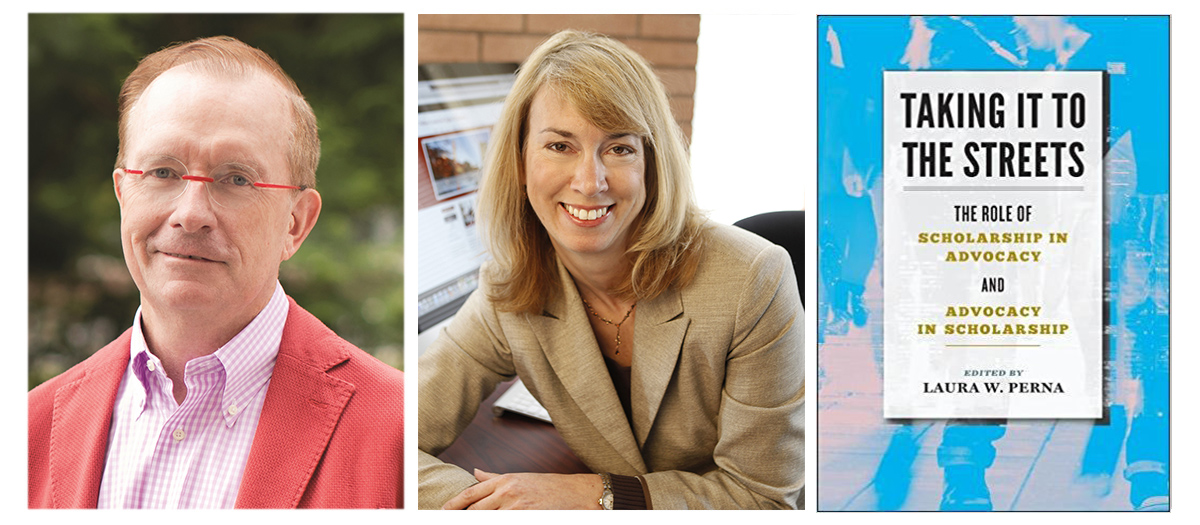
How should higher education research inform public policy and practice?
Pullias co-directors contribute essays to a provocative new collection on scholarship and advocacy.
Should higher education scholars remain detached, data-focused researchers — or should they take action to advance social change? A new collection of essays, Taking It to the Streets: The Role of Scholarship in Advocacy and Advocacy in Scholarship (Johns Hopkins University Press, March 2018), delves into these and other pressing questions for academic researchers today.
Edited by Laura W. Perna, James S. Riepe Professor and Executive Director of the Alliance for Higher Education and Democracy at the University of Pennsylvania, Taking It to the Streets brings together 16 essays with diverse perspectives from recognized thought leaders. Among these authors are William G. Tierney, Wilbur Kieffer Professor of Higher Education and University Professor at USC, and Adrianna J. Kezar, Dean’s Professor of Higher Education at USC. Tierney and Kezar serve as co-directors of the USC Pullias Center for Higher Education.
Tierney’s contribution, “A Road Less Traveled: The Responsibilities of the Intellectual,” argues that academic researchers, especially those with tenure, have a public responsibility.
“Too many tenured faculty see tenure as a right,” Tierney writes. “I see it as an obligation. Through tenure, I have been accorded an inordinate reward and privilege — a sinecure for life. Such freedom has placed on me three responsibilities. I have to marshal the best possible evidence to inform my research. I have to reach out to multiple audiences. And I have to initiate difficult dialogues that ensure that the academy remains a place where the search for truth is paramount.”
Kezar’s essay too argues that “public engagement is a responsibility of scholars and part of quality scholarship.” Titled “Using Philosophy to Develop a Thoughtful Approach to Going Public or Not,” Kezar’s essay cautions against the type of public engagement aimed primarily at gaining personal prestige for the scholar, and encourages scholars to instead engage with a diversity of stakeholders, including those with less powerful or minority voices.
“Public engagement should extend beyond the media — where public intellectuals typically aim — to involve various publics, including those who are the beneficiaries of or agents within the research and those who will act on the research to develop policy and shape practice,” Kezar writes. “The public should be considered in an inclusive way — encompassing students and parents, the media, the general public, and, particularly, groups that may have formerly had no access to our research or have been excluded as an audience.”
Tierney and Kezar’s essays in Taking It to the Streets continue their ongoing work examining the role of the public intellectual and scholarship in higher education.
Order Taking It to the Streets: Amazon | Johns Hopkins UP